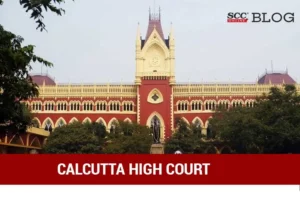Calcutta High Court: In a revision petition challenging the order of Special stalling the trial and directing the CBI to obtain sanction to make Prosecution Witness an accused, a single-judge bench comprising of Shampa Dutt (Paul),* J., held that the PW-3-accused is entitled to the benefit of Section 132 of the Evidence Act, 1872 and Section 307 of the CrPC and set aside the impugned order.
Factual Matrix
In the instant matter, the CBI registered an FIR on 10-08-1994 against several individuals from Tea Trading Corporation of India Ltd. (TTCL) and M/s. International Linkers, based on source information, alleging a criminal conspiracy among officials to favor M/s. International Linkers, resulting in the payment of Rs. 4.5 Lakhs as a security deposit. The case involved alleged double payment to the landlord by the TTCL authority through two cheques, bearing the signatures of the accused-PW-3 and co-accused, issued within a fortnight without confirming the encashment of the first cheque. The first cheque is not disputed, but the second cheque is contested as it resulted in double payment to the Landlord.
The charge sheet filed on 25-02-1997 accused individuals under various sections of the Penal Code, 1860, (IPC) and Prevention of Corruption Act, 1988. During the investigation, it was found that Senior Manager (Finance), was not involved in the criminal conspiracy and was listed as a prosecution witness 3 (PW-3). The trial commenced, and during the cross-examination of PW, the Special Judge presumed his involvement, leading to an order on 06-12-2018 stalling the trial and directing the CBI to obtain sanction to make him an accused.
Aggrieved by the impugned order, the petitioner-CBI preferred a revision petition challenging the same and sought to set aside the impugned order, asserting that it is not proper, well-reasoned, and misinterprets the evidence and law.
Moot Point
-
Whether Senior Manager (Finance), listed as a prosecution witness, should be made an accused in the case?
-
Whether the impugned order dated 06-12-2018 stalling the trial is justified?
Parties’ Contentions
The CBI contended that the PW was not involved in the criminal conspiracy, as evidenced by the investigation and the role he played in objecting to the proposed sanction of Rs. 2 lakhs. It was contended that the impugned order is challenged on the grounds that it ignored material evidence and misinterpreted the law. It was argued that PW is a crucial witness and not charge-sheeted, and his non-involvement in criminality is established by the evidence on record. The petitioner seeks the setting aside of the impugned order in the interest of justice. The CBI relied on Hardeep Singh v. State of Punjab, (2014) 3 SCC 92, emphasising onthe cautious invocation of Section 319 CrPC.
Trial Court’s Decision
The PW-3, claimed innocence, arguing that he was misguided and misdirected by co-accused to sign the disputed second cheque. The trial court noted the PW-3’s statement that he noticed irregularities in 1993 but did not protest at the time of signing the disputed cheque weakened his defense. The trial court stated that the subsequent protest and objection after the commission of the offence couldn’t absolve an offender of criminal liabilities. The trial court referred to Section 76 of the IPC, which provides protection to a person acting under the order and direction of a superior authority, however, held that there is no evidence that the accused was ordered to sign the disputed cheque by any co-accused. The trial court directed the prosecution to obtain sanction against PW-3 from the competent authority within three months.
Court’s Assessment
The Court emphasised on the discretionary nature of summoning an additional accused under Section 319 CrPC and highlighted the importance of strong and cogent evidence before exercising such power. The Court referred to Juhru v. Karim, (2023) 5 SCC 406, and highlighted Section 319 CrPC, emphasising that the power to summon a person as an additional accused should be exercised sparingly based on strong and cogent evidence. The Court also cited Sukhpal Singh Khaira v. State of Punjab, (2023) 1 SCC 289, for further clarification on the powers of the court under Section 319 CrPC.
The CBI suggested an alternative approach by citing R. Dineshkumar v. State, (2015) 7 SCC 497, where a witness was granted pardon and treated as an approver and the Supreme Court observed that “I hold that the evidence of the 2nd respondent, as a prosecution witness before the trial court, and the incriminating answers given by him amount to compelled testimony falling within the sweep of Section 132 of the Evidence Act and thus, he is protected by the proviso to Section 132 of the Evidence Act.” The Court while relying on R. Dineshkumar (Supra), held that “PW-3, is entitled to the benefit of Section 132 of the Evidence Act and also 25 Section 307 of the CrPC.”
Court’s Decision
The Court allowed the revision and set aside the impugned order dated 06-12-2018, passed by the Special Judge. The Court directed that the trial court to proceed with the trial from the date preceding the date of the order under revision. All connected applications, if any, stand disposed of. Any interim order, if previously issued, stands vacated.
[CBI v. Mrinmoy Chandra, 2024 SCC OnLine Cal 944, order dated 01-02-2024]
*Judgment by Justice Shampa Dutt (Paul)
Advocates who appeared in this case :
Ms. Chandreyi Alam, Counsel for the Petitioner/CBI

